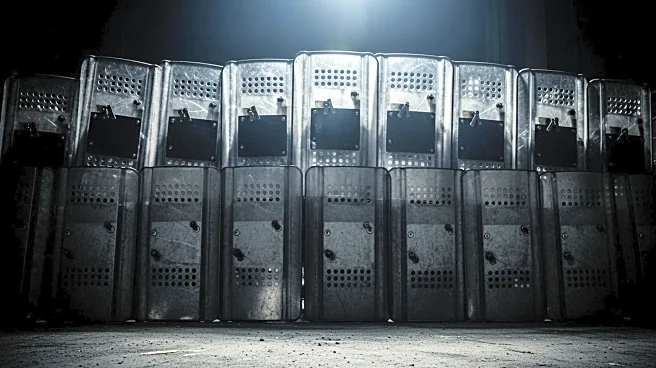What is the story about?
What's Happening?
Federal law enforcement officers in Portland intensified their tactics against protesters outside the U.S. Immigration and Customs Enforcement (ICE) facility, hours after a federal judge temporarily blocked President Trump's plan to deploy 200 members of the Oregon National Guard to the city. The officers used tear gas, flash-bang grenades, and pepper balls to disperse the crowd, which had gathered to protest against federal law enforcement and President Trump's mass deportation policies. The escalation occurred despite the absence of clear provocation from the protesters, who were pushed back several blocks from the ICE facility. The Department of Homeland Security has not commented on the actions taken by federal officers.
Why It's Important?
The escalation of federal tactics in Portland highlights the ongoing tensions between federal authorities and local protesters, as well as the broader national debate over the use of federal forces in managing civil unrest. The judge's decision to block the deployment of the National Guard underscores legal challenges to President Trump's approach to handling protests, which some argue could exacerbate tensions rather than quell them. The situation in Portland serves as a microcosm of the national discourse on federal intervention in local matters, with potential implications for civil liberties and the balance of power between federal and state authorities.
What's Next?
The Trump administration has filed an appeal against the judge's ruling, indicating that legal battles over the deployment of federal forces in Portland are likely to continue. The outcome of these legal proceedings could set precedents for future federal interventions in local protests. Meanwhile, the protests in Portland are expected to persist, with demonstrators likely to continue opposing federal law enforcement actions and advocating for the abolition of ICE. The situation remains fluid, with potential for further escalations or resolutions depending on legal and political developments.

















